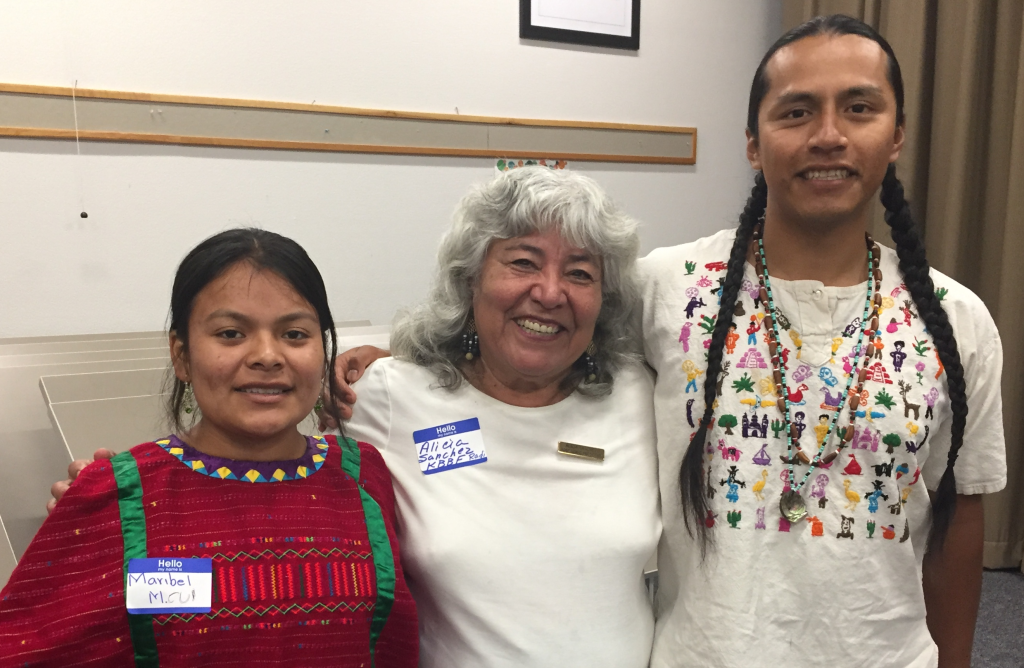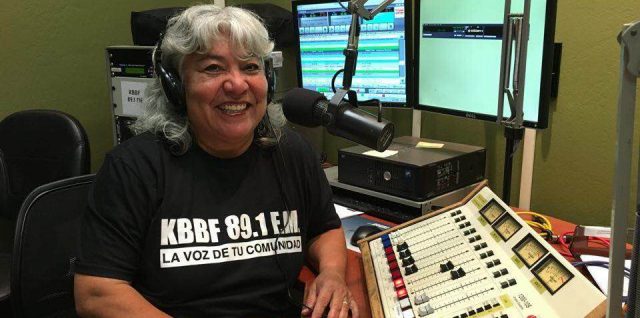In Northern California, Multi-Lingual Programming Saves Lives
At 5AM one morning, in 2017, Alicia Sanchez, Board President of the Bi-lingual Broadcasting Foundation that operates KBBF, received an urgent phone call. A station programmer told her he could see wildfires closing in on their Santa Rosa community and that the few stations broadcasting information were broadcasting only in English.
By 5:30AM, a small crew was feverishly working at the station.
Sanchez recalls, “I told them just stream from any place you can get information. We streamed from an English speaking radio station, and then we were translating everything into Spanish, and then we handed it over to the programmer and he would air it.”
Over the next few days, as the fires continued to burn, Sanchez followed the city and county press conferences. None were in Spanish.
But KBBF continued its work, and, Sanchez reports, in the aftermath, “We were finally able to get the county to listen to us and the other governmental and other non-profits to do things bilingually.”

Two years later, in 2019, wildfires again threatened the local community. This time, Sanchez believed, bi-lingual information would be promptly delivered and all community members would be safe. But then, she thought again.
She, as well as others, had forgotten about the many farm workers who were
indigenous people from Mexico and who spoke little or no English or Spanish.
Says Sanchez, “They speak Triqui, Mixteco, Zapoteco, Maya, many other languages. And all of a sudden, we came to realize these people don’t speak Spanish even though they’re from Mexico….They were left out.”
Insuring that essential services reach agricultural workers is a purpose that sits close to Sanchez’s heart. “These are our farm workers who make Sonoma County just like Napa County one of the richest….California agriculture is the number one industry we have….My parents were farm workers….My dad said being a farmworker is a noble job.”
Her realization brought quick change to KBBF. The station is now multi-lingual, bringing in translators so that information can be offered in three indigenous languages.
For Sanchez, this development sums up the central mission of community radio.
“We had to look at our community…. And see who’s here…. What does our
community need . . .We were not serving . . . a group of people that…is part of our community….We don’t just offer service to the farm workers; we are the servants of the farm workers and the community. As community radio, we have an obligation . . . a moral obligation to be a voice for the community.”
Alicia Sanchez is President of the BBFI/KBBF Board of Directors. She has been involved with KBBF since 1986; and, since 2010, she has been a full-time volunteer at the station.
Her comments were made as a participant in the “Keynote Panel: Power to the People/The Impact of Diversity and Inclusion in Community Radio” presented at 2020’s Virtual Grassroots Radio Conference.


